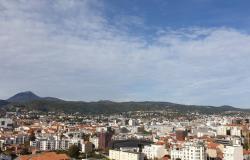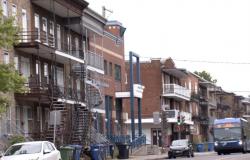This evening and tomorrow, blue tides of proud Quebecers are expected across the four corners of the province at the various Saint-Jean-Baptiste Day shows. These impressive displays of pride can capture the imagination, but they are first and foremost the sum of much more intimate and personal feelings.
And it starts early! “We are so proud of you!” A phrase – or rather a mantra – that many children will hear in their lives with every effort or success. “Pride is closely linked to self-esteem, it’s super important,” insists Mathieu M. Blanchet, professor and clinical psychologist. Parental kindness is essential, but the child must learn to develop his own sense of pride in his skills and accomplishments.”
Like love, pride cannot be forced.
Understand: pride is like love, it can’t be forced. This is true for the individual as well as for the group.
“Pride doesn’t sink into your throat,” says Jonathan Livernois, writer and full professor in the literature department at Laval University, when asked about the meaning of this emotion. which arises on every national holiday.
The specialist in the links between literature and politics discusses the creation of the National Museum of the History of Quebec (MNHQ), announced by Quebec last April. During the unveiling, Prime Minister François Legault, accompanied by Minister of Culture Mathieu Lacombe, clearly expressed his intention to arouse the pride of Quebecers with this new institution. “Except that we cannot impose a national narrative on Quebecers to make them proud,” adds the writer who is also the biographer of the poet-politician Gérald Godin. It’s going to sound wrong one way or another.”
Prime Minister François Legault and Minister of Culture and Communications Mathieu Lacombe during the announcement of the creation of the National Museum of the History of Quebec. (Caroline Grégoire/Archives Le Soleil)
“We can make announcements on the importance of Quebec pride all we want, we can surf on it, but we cannot order it.”
— Historian Martin Pâquet, professor in the department of historical sciences at Laval University
Why is pride important?
If politicians are so interested in pride, particularly politicians, it is because the power of emotion is immense. “Pride has a city was the slogan of the City of Montreal in the 80s and today, the party of the mayor of Quebec is called Quebec strong and proud, recalls sociologist Jean-Philippe Warren. In all kinds of contexts, pride is used to bring people together under a common agenda. It’s important to galvanize a population and make them believe in common goals, possibly leading them to participate in social movements.”
It is better to feel pride than shame. But how is pride formed? According to psychologist Mathieu M. Blanchet, “pride is born when your real self gets closer to your ideal self. It is an emotion that emanates from the process and not necessarily from the result. You can be proud of the journey without having achieved your goal.”
The pride we share as a group is a bit more complex to define, according to historian Martin Pâquet. “It’s an emotion. It’s not tangible like a social struggle, or a conflict, can be, he says. Collectively, individuals share pride in being who they are, for example on National Day, but have different reasons for being proud of this identity.”
A feeling lit by multiple sparks
And there, all the reasons are good. Great artists, culture, language, technological advances, entrepreneurship, tolerance and openness are all reasons to be proud. The social progress that is the envy of the rest of the world and which makes Quebec one of the most egalitarian societies also comes back often. “We emphasize the Quebec model of building a society where social solidarity is part of the collective values,” observes Jean-Philippe Warren.
One thing is certain, we are proud of what we have done, not of what we are going to do. “There always needs to be a prerequisite, it starts from accomplishments,” continues Martin Pâquet. Without forgetting that pride is fleeting and needs to be renewed with other achievements. We were very proud of our dams, that’s less true today.”
Proximity in time, but also physical proximity. “Pride is not admiration,” he explains. I am proud of my daughter who has just finished her studies in translation, but I can only admire Nelson Mandela, because I have no personal experience with him. This is why artistic and sports stars cultivate proximity with their fans so intensely, which Celine Dion embodies perfectly.
Celine Dion at the Bell Center, February 2020 (François Roy/Archives La Presse)
Culture, an important vector of pride
This is partly why culture is often cited in Quebec pride lists, but also because it is a safe haven. “The notion of patriotic pride in the United States is very clear,” explains Jonathan Livernois, professor of literature. We survived culturally, but we experienced a series of political failures. In this context, the culture is very comforting and a breeding ground rich in pride.”
Quebecers are therefore proud, but they are not boasting about it. Sociologist Jean-Philippe Warren notes that our form of pride is more moderate than what we see in England, the United States and even France.
“We are wary of this kind of pride. The French Canadian discourse has never been triumphalist, it is a legacy of our history. “A people without literature and without history,” Lord Durham had said. It influenced the way we articulate our pride. We also deserve our place, we are proud of what we do and what we are, but on an equal footing with all other peoples.”
— Jonathan Livernois, literature professor
Temptation of arrogance
For him, we must at all costs avoid the slide towards arrogance, when pride is accompanied by contempt for what others are. Or as Martin Pâquet explains, “there is pride which comes from satisfaction with an achievement, then there is pride which leads us to believe ourselves superior to others.”
“When our pride manifests itself through culture, we are proud without dominating others, this is what we experience on Midsummer’s Eve,” explains Jonathan Livernois. We celebrate without crushing anything or anyone. However, imposing a national narrative creates pretension and necessarily excludes people.”
How to avoid the trap of arrogance? “Know how to recognize where success comes from, the source of our pride,” recommends psychologist Mathieu M. Blanchet.
The antidote to arrogance is therefore found in the Quebec motto “Je me remember”. And perhaps also in the words of René Lévesque who knew how to celebrate us without triumphalism by calling us: “Perhaps something like a great people…”







